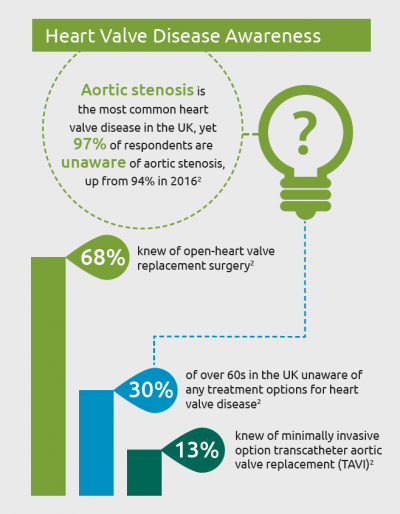
Awareness
Sunday 29th September 2019
(UK) First and foremost for us it is awareness levels of the disease and its symptoms. Which is why we put so much emphasis on detection of the symptoms by the individual, clinicians and family members.
(US) Agreed. No one wakes up in the morning with chest pain and thinks “this must be my heart valve.”
(UK) Exactly - and too often we see people excusing symptoms away or changing habits based on breathlessness, dizziness and tiredness.
(US) This is why it’s important to spread awareness, it isn’t just the patient who can detect these symptoms, we need to be educating family members too.
(UK) And general practice physicians.
(US) Definitely. General practices need more education and training in how to detect heart valve disease and refer patients to proper specialists. We will be working on some professional education programs to address this.
(UK) It is something we are constantly looking for innovative ways to improve. We found great success in giving clinicians access to further information remotely through our webinars. It’s definitely a platform we will continue to utilise in the future.
(US) Another barrier we discovered in our research is that many patients who are diagnosed with heart valve disease never go back for treatment. Now, there could be several factors here -including access to care, lack of insurance, distance from an appropriate specialist or a lack of understanding about the risks of the disease as well as the treatment options for them. But it is certainly striking and crystallises the complex challenges we face.
(UK) Access is key here. Access to echo in the UK is poor. You simply cannot have situations where your likelihood to be detected and treated timely and effectively is determined by your address.
(US) Agreed. Awareness and access are our two biggest barriers. The challenges they present are complex but we continue to find new ways of tackling them.
